#daisy fitzroy too
Text
booker dewitt is way too fucking hot to be acting like this tbh i need to get him out of that racist ass game
6 notes
·
View notes
Text
Speaking of BioShock Infinite, have I ever told you about that time I made a timeline of the BioShock series?
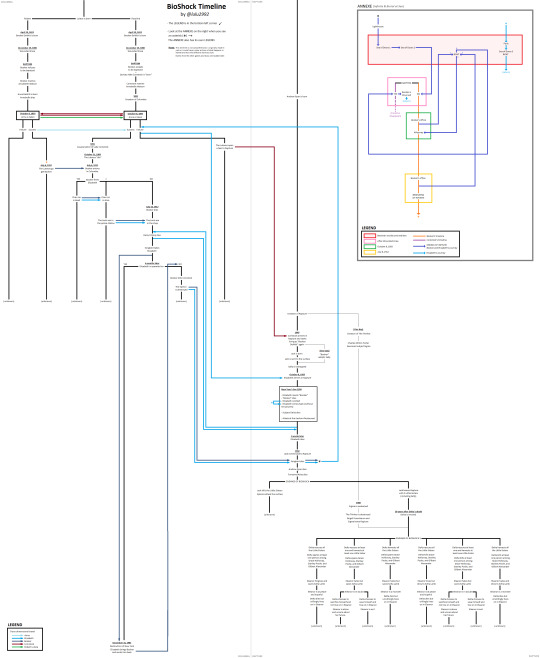
Tumblr made the image smaller so I’ve uploaded the original here :)
It’s far from being exhaustive because the reason I drew this in the first place was to make sure I really understood Infinite (the ending, especially) and Burial at Sea, so only the most significant and/or pivotal events are featured here. I later added some stuff from the other two games and the Minerva’s Den DLC after playing them. However, the novel BioShock: Rapture isn’t included because I haven’t read it (and it seems it’s generally not considered canon anyway).
I made this 8 years ago (with Paint, haha) but very recently translated it and made some adjustments so I could post it! I didn’t check everything I wrote because it’s been a while since I’ve really thought about the lore of BioShock, so I decided to trust my 2015 self and assume she knew what she was doing :’)
#2015 lulu was too insecure to show this to anyone#look me we finally did it 🫂#feel free to correct this or ask questions!#bioshock#bioshock 2#minerva’s den#bioshock infinite#burial at sea#the canonicity of 2 is debatable partly because the original creator wasn’t involved#but I still like it and it’s a bioshock game so I’ve included it#that said ken levine himself retconned many things so yeah#booker dewitt#elizabeth comstock#anna dewitt#zachary comstock#rosalind lutece#robert lutece#daisy fitzroy#chen lin#andrew ryan#jack ryan#eleanor lamb#subject delta#sofia lamb#subject sigma#brigid tenenbaum#grace holloway#stanley poole#gilbert alexander
143 notes
·
View notes
Text
In Defense of BioShock Infinite
Although I had preordered BioShock Infinite with all its bells and whistles, I did not actually play it until January 2023. And lordy, I had me another Experience with a capital E. How the hell a bunch of urban Yanks could capture my experience as a queer democratic-socialist atheist struggling with her roots as a rural evangelical-cum-fascist is kinda magical, honestly. As to the game itself, it didn’t hurt how good it looked—the kickass skyhook gun battles—that novel setting—the complex characters—that delicious historical setting—that bloodthirsty critique of America—and to top it all off, they had pulled yet another Cassandra. Hell, speaking of which—not only was the game fun, it was fucking smart. It was intelligent, memorable, and meaningful in a way I hadn’t experienced in video games for years.
Now, back in 2013, when I had realized that I would be spoiled for Infinite, I left the BioShock fandom. After completing the game, I headed to Tumblr to re-engage, wagging my whole body like an excitable golden retriever, only to discover that BioShock Infinite was remarkably absent, and when mentioned, brutally derided.
“I hate BioShock Infinite and all my friends do, too,” someone said in the tags under a post.
I was utterly befuddled and deeply sad. I wanted to talk about BioShock Infinite! I wanted to dig into it, uncover unexpected ideas, learn new things, talk shit, make new friends—the full fandom experience. And instead I kept stumbling into hateful diatribes and super-charged disgust.
Obviously, I first looked at myself and my own judgment. Had I missed some obvious problem or misread some theme or dialogue? This wouldn’t be the first time I’d snapped down on a hook. But the more I thought about it, the angrier I got.
There are two parts of BioShock Infinite that are unquestionably terrible: the fridging of Daisy Fitzroy and the false equivalence of violence between haves and have-nots (lol what are the have-nots supposed to do, ask nicely?). Additionally, one could look at the use of real Native American tragedies as tasteless. Personally, I do not—in the same way that I don’t find it tasteless that real war victims were used as inspiration for Splicer deformities. This is what really happened; this is commentary on events that really happened to real people.
At this point, I’m sure I don’t have to explain why two of these themes are Unequivocally Bad.
Anyway, I thought that perhaps these were the reasons BSI had been condemned to Super Hell.
I was wrong.
How Criitcsim Werk
This wasn’t the fandom I’d made friends in over 2010. Hell, this wasn’t the fandom of 2013. This was a fandom made up of Babies. They were making their first coltish stumblings into media criticism and with it, dredging up the same brain-dead bullshit from Tumblr circa 2008.
Suddenly I was brought face to face with people who seemed to think that if a character couldn’t be likable or good that the story itself couldn’t be likable or good; that one bad element means the story is unsalvageable (lol u pussies); the implication that one is bad for liking it; the destructive juvenile insistence that media accurately measures its fans’ moral qualities en masse like an astrological sign. This goes far beyond simple like or dislike and plunges head-first into Puritanism: praying loudly on street-corners instead of quietly in a dark corner where God might hear you.
At one point I had a kid go off about how they wouldn’t take time to understand Booker DeWitt’s perspective because he had (fictionally) taken part in a genocide. (That same person said the Native American element had been employed for shock value, a thought that sometimes keeps me up at night, because it is legitimately one of the dumbest criticisms the game has ever received.) At another point I saw someone acting personally offended that (fictional person) Dr. Suchong’s (fictional) data was being stolen (in a fiction) by a (fictional) racist who would (fictionally) take credit for (fictional person) Suchong’s (fictional) inventions “while calling him slurs”. Sure, a better question would have been, “Why would the creative team opt to do this” rather than assume intentional racism from a Jewish creative director with an in-office multi-ethnic team in the year of our lord 2013, but why not handwave the choice with prurient moral dismay so your audience won’t beat you to death with bats?
It was as though fans were treating these completely fictional characters as real people whose personal gods had opted to torment them, and that their tormentors merited the kind of censure that psychopaths should receive. As I hope all of you understand, this is fucking madness.
More than once I saw people posting about hating the studio or the creative director in ways that seemed intense, unreasoning, and excessive—notably an “I Hate [Irrational Games creative director] Ken Levine” stamp (rofl the more things change amirite). People get so performatively moralistic about it that I started wondering if I missed something big along the way. Was there some secret Voxophone I missed swearing fealty to baby Hitler or some shit?
Double Standards
At the same time, I was utterly confused. BioShocks 1 and 2 both featured some absolutely ghastly bullshit based on real-life horrors and a thick mix of complicated human beings—many of them victims who have become monsters. The fact they are grounded in historical tragedies is a huge part of their appeal. Hell, I don’t think those games would have had half their meaning without World Wars I and II and the threat of a third.
A gay man who feels so cursed by his orientation that he is incapable of intimacy and systematically destroys his ex-lovers—including the man he loves the most. A Korean who survived Japanese occupation and a Jewish Holocaust survivor repeat the violence and traumas exacted upon them and their people, subjecting a new generation to agonies unthinkable. Chasing the shadows of Bolsheviks, a Russian citizen becomes the brutal tyrant that he loathed. A rich lawyer with an easygoing drawl designs a concentration camp and systematically harvests hundreds, if not thousands of political prisoners, selling them out to medical testing for a quick buck.
But a Native man who destroys his own people and class to ensure his own survival and social acceptability is too far? This character is where people drew the line, so much so that the entire game is disavowed? Hell, if you’re just talking about Booker (rather than Comstock), he doesn’t have anywhere near the largest bodycount. If we were to judge on the metric of human misery alone, Booker wouldn’t even hit the top ten.
Keep in mind that the most-discussed BioShock game on Tumblr is BioShock 2, and that one of the biggest fandom favorites is Augustus Sinclair—the easy-talkin’ Georgia lawyer who sells your character into horrors past all human comprehension, as he sold hundreds before and after you. Sinclair is a motherfucker so vile that BioShock 2 gives you no choice but to murder him. But Sinclair is also pleasant; good-looking to some; spends the whole game making sweet love to your ear; is one of the only true positive experiences you experience in a horror story. Unlike DeWitt, a man who is brutal and awful from step one, Sinclair is smooth and sweet. Unlike DeWitt, Sinclair’s victims are faceless, completely fictional, and carry no political or social baggage.
People fuckin’ ship this guy with Subject Delta, his explicit victim. He’s usually described as a squishy cinnamon roll. In most fanfiction, he often gets to escape to the surface and fuck Delta while helping raise Eleanor as Dad 2. It is rare that I find fanfiction that acknowledges his monsterhood in all its glory. In fact, I can only think of two.
Literacy Comes in Levels
My problem with the over-the-top hatred of BioShock Infinite is along the same lines as my confusion at Twilight and Harry Potter hate: there is so much worse out there (how much do the haters actually engage with media if they think this is that bad—yes, even considering the shitty creators themselves!), the hatred far outweighs the sin committed (in BioShock’s case, the truly bad bits are not central enough to derail the larger narrative), people don’t seem to hate it so much as they want to be seen hating it, fans want to enforce an unspoken rule hating it (bitches this is poison. Stop this), and there’s something about the hate that stinks of poor reading comprehension.
A great metric for general literacy is the newspaper. In journalism, you’re writing for the lowest-common denominator, which for years here in the USA has been about a fifth-grade reading level (about 10-11 years old, for my non-American readers). The AP posted an article a couple years back about how the general reading comprehension of Americans needs to be dropped to a third-grade one (8-9 years), and baby, I’m here to say it’s true.
Most of the problem is that the American education system is shitty as fuck. The rest of it is from an extremely American disdain of intellectualism and the arts. People are not taught how to interpret art or literature—a difficult and subtle skill which involves accepting such truths as “multiple contradictory readings can exist and yet be simultaneously correct”, “the author can be a complete tool and still be right about things”, “the author can be a great person and still write horrifyingly incorrect bullshit”, and “worthwhile works can be ridiculously long and it really is your fault for not having an attention span”.
Media criticism must be learned through trial, error, asking questions, confidently swaggering into a public space to announce your brilliant insight only to have your ass handed to you (usually by your older self ten years later), being willing to admit you swaggered confidently into a public space to state bullshit and then amending your bullshit only to produce more bullshit, and otherwise making a complete and utter cock of yourself. We are taught to fear and flee pain and failure, despite the fact this is how we learn and improve. Because we judge our value by whether or not we are “smart,” we are afraid of displaying that we don’t know something or might be mistaken–better not to try at all than to reveal ourselves to be fools. And yet the best way to learn is to crash up against someone else and be proven wrong!
American parents are terrified of hurting their children to the point that they spare them cognitive dissonance of any kind, disavowing difficult art—without any appreciation for the fact that art is how we provide safe spaces to explore key human experiences, better preparing us to face those difficult subjects when there are real-world consequences (sex, gender and social expression, grief, violence, predation, illness, interacting with people of different ideologies, whatever new issue is pissing off some smooth-brained old motherfucker somewhere).
If parents and teachers aren’t teaching us how to interpret art, we’re probably never going to develop the skill at all, or crash unsubtly into it in a piecemeal fashion (hello it me). Another unfortunate side effect is that these readers tend to be blitheringly superficial: they are literally intellectually incapable of reading deeper than the uppermost layer of a text. The curtains are always blue.
And let’s not forget the role moral performatism plays in media criticism, which although faaar from new, has reached hilarious levels in the age of social media. What’s important isn’t understanding something, it’s finding something to symbolically burn at the stake so everyone knows God loves us: please keep loving me, please don’t hurt me, please don’t throw me on the fire—for performatism is not for outsiders. We long for human connection so fucking much that it’s more important to destroy what might point out our fallibilities than it is to let ourselves stand in the furnace and burn out the dross.
What do you think the point of BioShock Infinite was?
Emotional Machines
Let’s face it. Human beings give a lot more credence to how something makes them feel than they do its complex invisible reality. We are not logical creatures; we are emotional ones. Our logic is too new a biological mechanism to override something as powerfully stupid as our primal lizard brains.
Knowing this, let’s take BioShock’s most popular characters. The first two are Subject Delta and Jack Wynand, the protagonists of BioShocks 2 and 1, respectively; and why not? They’re the characters we play. In the first two BioShocks, whether or not you kill Little Sisters determines the ending you receive. In other words, Delta and Jack can only be as “wicked” as the players are.
How do people want to see themselves? As good. What do people want to see around themselves? Good. (What is “good”? Uh, well,,,,,,) What do they want? Simple moral questions with simple moral answers. And in the first two BioShocks, what is moral is obvious: don’t kill little girls. It’s actually kind of insulting once you say it out loud.
In-fandom, Jack and Subject Delta are almost never painted as murderers or monsters, but as victims and heroes; I saw someone musing about putting Subject Delta on a “gentle giants” poll and I nearly choked on my own tongue. I only saw that musing because someone put Subject Delta and Jack in a “Best Fathers” poll. Nobody in-fandom really considers the “evil” or “complicated” endings as canon choices, despite those versions being fully understandable alternate readings, with a story that doesn’t make sense without them. (I don’t believe Burial at Sea is necessarily canon; in fact, I would bet good money that it is a huge middle finger lol, mostly because a number of brain-dead motherfuckers won’t take unhappiness for an answer.)
Most fandom art and writing is gentle, sweet, good: the symbolic healing of the damaged, the salvation of innocents, the turning of new leaves. These things are not just saccharine sweet—they tend to be unrealistically sweet. Now, far be it from me to demand these works cease. There’s a reason they exist. People write them because they need hope and happiness; I have enjoyed them greatly myself and intend to enjoy them in the future. But if y’all get to have your dessert, I demand the right to have my dinner.
The Colours Out of Earth
Let there be media where the opposite can also be true: where everything is unbelievably complicated and unforgivably fucked-up. Let there be characters who slide slurs into their speech without thinking. Let there be characters who destroy themselves in a thousand different ways, not all of them obvious, some of them horrifying. Let there be well-meaning people struggling with all their mights to do what is right only to destroy everyone around them and then completely miss the fact it’s all their faults. Let there be wickedness painted as goodness, superficial appearances accepted over essential and inherent values, denial of change and transformation, failure to accept that what is old must die and what is new must live, human stupidity and short-sightedness and cruelty in all their flavors. Let’s smash it all together and see how it plays out.
Oh, badly? No shit! But “badly” isn’t the point. How does it play out?
Let there be a world of gradients—a place I can float from color to color, hue to hue, value to value, while attempting to figure out where, why, how, and by whom they transform—to taste concepts in a hundred different ways, test their textures by a hundred different mediums, insert them into a hundred different contexts. I need to understand why I feel the way I do; I need to understand morality in all its hideous, fragmentary glory. For I have been sold to a ideology of blacks and whites, and let me tell you: it prepares you for nothing, and it will always destroy what is most precious about human life.
I can no longer believe in a world where what is lost always returns, because that world does not exist. I have a reflexive need to come to terms with Finality: what I have lost, what I have destroyed, what will never return, what will never be better. I have a reflexive need to understand Transformation: what I am now, what is as of the present, what has risen shambling from the ashes, what turns to gaze upon me in the darkness. I need to understand what is wretched about me as much as I need to heal myself. How can I heal if I can’t understand how I have hurt and been hurt?
I need to shine a light in the dark. Not to remodel it, not to destroy it—because I also can’t believe in a world where the wicked is destroyed forever—but to behold it, to learn from it, to view my own impact upon it, to accept how it has become a part of me, to learn how to do my best (because that’s all one can do). I must learn to love people more than causes, I must learn to love people rather than the act of winning, I must learn to love people rather than battle. I need to stand in that endless black with the lamp off and my eyes closed, letting the agony roll over me, burning with a fire that throws no light, rolling back and forth from an intense self-loathing to a fury at a society that destroys what is most valuable because it didn’t make them feel the way they wanted.
The Unforgivable
I believe that there are only two differences between Booker DeWitt and his equally cursed cohorts.
In the Hall of Whores: The Unmarked Slate
First, unlike the previous two games, where you enter the world as a tabula rasa and might roleplay as what you perceive as a good person, you are explicitly put into the shoes of a monster, and nothing you do can save you.
With other shitty BioShock characters, you are passively watching other people, and you are able to hold yourself apart. Sure, everyone else is crazy as fuck from using biological Kryptonite, but you’re too smart to end up a crazy fucking asshole like them! Sure, you are now technically a mass murderer, but those fuckers deserved it, damn it!
“Look at this crazy bastard!” you say, rolling your eyes at the Steinmans and Cohens and Ryans and Fontaines. “It sure is a great thing I’m not a crazy bastard!”
You are able to escape acknowledging that you, too, in certain circumstances, might be the crazy bastard. You are being challenged to stand in the body of a person who has committed unforgivable sins. Imagine if you yourself committed those sins. Imagine what sins you have already committed. Imagine what brutalities you cannot take back. Imagine what horrors you have wreaked just by breathing.
“Ahhhh!” said players, probably. “What do you mean I’m not allowed to be good?”
Because that’s what the game was designed to do. Because “good” is a fucking cop-out and if it’s how you live with yourself wait until you find out you’ve been doing horrifying bullshit all your life without question. You can be evil by association through no fault of your own.
Original Sin
Second, the plight of Native Americans is a sin that non-Natives will always carry, and the socially conscious are aware of this even if they don’t know how to put it into words. The state of affairs being what it is, it is unlikely that First Peoples will ever be treated humanely, much less have their land returned. They must struggle for scraps of what is rightfully theirs while we lounge on their corpses. We cannot help but benefit from their destruction; we are made unwitting partners with our forebears; we steal the fruits of their lands and make mockeries of their faiths and identities. We have destroyed part of what made this world fascinating and unique and most of it can never be returned. Even if everything were to be made right tomorrow, their genocide is a sin that we will carry until we die, because the only reason we could be here at all is because they were killed.
The obvious solution stands before us, but the powers that be are so much greater than we that we are effectively powerless, and achieving anything less than total restoration smacks of anticlimax.
This is unbearable.
How can one think of oneself as a good person if one sees the good that must be done, but cannot achieve it? If one’s actions are meaningless? Goodness without action is pretension.
We are all Booker DeWitt. We have all set fire to the tipi. We swept the ashes away, we ignored the sizes of the bones, we built a CVS on their graves, and then we made statues and holidays commemorating Native Americans like the world’s cheapest “Thinking of You” card. We have de-fanged them, transformed them into cardboard cutouts, and set them up as cute little side characters in our sweeping American dream.
Booker is not a man. Booker is America and Americans—and America and Americans are monstrous: one part hypocrisy, two parts incessant violence, three parts constant peacocking, and four parts dumb as a stump.
The Monsters We Make
Outside of the message about “choice,” an enormous part of BioShock’s thematic ensemble is the creation of monsters. How are monsters created? Who or what is responsible for creating them? What do the monsters think made them the ways they are? Can a monster be saved? How? Is it enough to acknowledge you did wrong and want to be a better person?
Maybe most people are aware on some instinctive level of what facing one’s own monsterhood means. No one wants it. It’s not fun. It hurts. It’s embarrassing. It’s destructive. It’s admitting you don’t have it all together and might never, ever—that despite your best actions, you can have it horribly wrong at any point. In an age where we demand moral perfection, it demands vulnerability: you must admit that sometimes you’re the racist, the transphobe, the sexist, the nationalist, the classist, the homophobe, the violent, the wrong, the dumbfuck.
Human beings are not built to be moral; human beings are built to survive. We so rapidly learn how to deal with our contexts at such young ages that we don’t have the time or capabilities to question why those contexts are the ways they are or why it is demanded we perform the ways we do.
In a very real way, BioShock Infinite demands vulnerability of us. It demands you look in the mirror and see what is monstrous in you—how you have been created—manufactured—a tool, a machine, a trained animal. It asks you to recognize that you can be a monster simply by association. And if we can’t look into the mirror and truly acknowledge that monsterhood, we run very real risks of becoming or enabling those monsters in one way or another.
Worst of all: perhaps monsterhood isn’t optional. Perhaps the monster was inside of us from the very beginning. It’s not a matter of if you become a monster, but when, under what circumstances, by whose hand. What is more, believing the “right” moral stances will not save you. Monsterhood can afflict anyone, in any ideology, any political stance, in any social movement, in any faith. The only element that can save you is to truly love other people, and even then, you can fail, for there can be states where there is no winner and ways to misread how best to treat another person.
Environment and Society: Context Will Not Be Denied
BioShock 1’s original ending is Jack-as-monster, regardless of how many children he saves, regardless of your feelings as player. He passes through the gauntlet of Rapture, but he has supped of its poison. And he wasn’t poisoned when he entered Rapture the second time—he was poisoned the minute he was conceived. He was born of it. He had no hope of ever escaping it—he never could have—he’d never had a choice to begin with.
No matter what choices you make in BioShock Infinite, Elizabeth will always kill you. Why? Because she has seen every world—every context—every limitation—every boon. And there is no way to stop what has been; there is no way to undo what has been done. The minute you have committed to a decision, you have split the universe; there is no telling what kind of person it will make you. In fact, there’s no telling which of your decisions will matter at all. Only Elizabeth can see because she is the unlimited future: your offspring stands before you, judge and jury, and you will have no choice but to accept her verdict, for despite your name, you are incapable of controlling how you are interpreted.
Elizabeth sits across from you in the boat and stares without blinking. She sees a million million similar Bookers. Some are a little bit taller, some a little bit shorter, some a little heavier or lighter. Some more-resemble one grandparent or another. They have different colored ties. This one blinks when rain hits him in the eyeball. That one took a brutal beating back on the airship and one eye is swollen shut. That one can’t stop shaking; this one is unable to speak at all; one hasn’t yet lost hope, although even he doesn’t realize it.
They all lowered the torch to the tipi.
The baptism determined Comstock; what determined Booker?
Why Booker Is
In BioShock 1, characters are often stand-ins for larger concepts. Thus Ryan stands in as Ayn Rand’s Objectivist Ubermensch; Bill McDonagh as Andrew Ryan’s conscience; Diane McClintock as the citizenry of Rapture; Captain Sullivan as law and order; Frank Fontaine as the truest expression of Objectivism in its distilled form.
Who is Booker? Most importantly: why is he?
Booker is a fictional character with a brutal background based on historical events, alternative and true. Booker might be Lakota; Booker might have undergone forced Anglicization; Booker might have been ripped from his parents; Booker is a product of violence, perhaps literally. Booker is American exceptionalism distilled. Booker is the past in constant judgment of itself, unable to live with itself and unable to die. Booker destroys what is best in him and around him in exchange for belonging. Booker has sold the future to absolve his sins. Booker has sold his daughter because he is a fictional character in a work of fiction who needs to be propelled.
Booker is a shell, a sluice, an environment. Booker is the broken shape you are meant to fill, horrified. His internal shape should torture you as it has tortured him: the messy slaggy soul of a shitty tin soldier.
Does Booker take the baptism and become Comstock? If so, it might be his second one. His last name literally means “the white.” His first name can mean “author.” It is most likely his second name: an attempt to rewrite himself. And when he was unable to rewrite himself the first time, when the cognitive dissonance boiled at the edges of his skull, he found there was only one way to cleanse himself the second: to remake the world entirely. To force transformation on everyone else. To take vengeance on a world that could never love him, never want him—to create a world that has no choice but to love him. If he can’t change the world’s mind, he’ll change the world.
Note what he opts to do: to take the fight to the environment–to the unyielding universe.
Context Is Everything
It is no mistake that BioShock Infinite occurs in 1912: the sinking of the Titanic is often credited with ending an unfettered optimism, a period when the Western world believed technology had brought the human race into a golden age. With World War I—which would follow a mere two years later—came modern warfare and all the horrors thereof, not the least of which was the realization that humans had created a kind of war that could destroy the entire world. World War I also seeded the rise of the United States: much of the wealth of warring Europe—itself fat on the blood of subjugated peoples and stolen lands—would rattle into America’s coffers.
It is also no mistake that BioShock 1 directly follows World War II. With WWII came a heightened terror—that this war is not the last war, that there will never be an end to war, that war will go on expanding and expanding until it has consumed us all. World War III would not be denied: prettily packaged in the ideals of its children, it simply followed the utopians down to their underwater tombs. According to BioShock 1’s original ending, World War III is not a matter of if—it’s a matter of when.
But even more important than the history in the BioShock games are their settings. Mute leviathans, Rapture and Columbia determine all of your behaviors: from where you can exist in space to all of your desires and goals to how you choose to present yourself to how you opt to behave. Isolated in extremism—whether that extremism is the crushing depths of the ocean or the unbearable lightness of the air—most of their power is that they simply cannot be escaped. You can’t outrun them. They are everywhere. They are everything.
Like Lovecraft before it, BioShock acknowledges the greatest horror of all: you cannot escape your context. Your context does not only involve your immediate surroundings. It is also historical; contains zeitgeists from various cultures and subcultures; is filled with pressures both personal and impersonal, human and nonhuman. Many of these forces can hurt you. Many more can destroy you. What you do to survive depends very much on where, when, and with whom you must live.
Human beings are not built to be moral.
The Death of the Future
In the film Operation, Burma!, a soldier asks Errol Flynn: “Who were you before the war?”
“An architect,” says Flynn.
Who were you? Because that “you” doesn’t matter now. That “you” is irrelevant. So you’re an architect. What the war does to you; what these deaths mean to you; your past, your education, your loves and desires and forward motivation, the you that could have been outside war, the you that slogs alone into the brutal future—all completely irrelevant. Your forebears don’t care so long as you can bleed.
Children are the manufactured tools of their creators—helpless before the enormous strength of their elders and the zeitgeists that enclose them, poisoned by their parents’ insecurities and flaws, utilized like weapons regardless of the cost—often with great love.
Consider something more than the traumatized culture: consider the society filled with traumatized children; consider the traumatized society. Consider channeling children through that trauma over and over and over again, if you can. Poisoned—poisoned—poisoned—all of us poisoned. Poisoned by those who loved us most. Poisoned by the people we trusted. Poisoned by the people who meant to make a better world.
I believe it is notable that creative director Ken Levine is Jewish; I have read from multiple accounts that the European Jewish diaspora was uniquely traumatized from the Holocaust and passed that trauma down upon their own families. I sometimes wonder if he saw that firsthand.
The fathers eat sour grapes; their children’s teeth are set on edge.
Choice: Player Expectations and Entitlement
For players who experienced BioShocks 1 and 2 with their multiple endings (Good, Bad, and “ok bye then I guess” respectively), it must have been jarring to suddenly reckon with being a monster. How often I see players grousing that nothing they do will change their wicked pasts! These players completely miss that the only meaningful choice had already been made, that it had nothing to do with the player at all, and even if they had been there, DeWitt was still unforgivable. The only way to go on was to bow out and allow the future to redefine herself.
Nobody was ready for that shit.
Like it or not, BioShock 1 had set a precedent. Not everyone’s going to read up on creator intentions. If any keyword came blaring through the noise, it would have been “choice.” Most players only recognize choice by the ability to make it, not the absence of it, and most of them weren’t equipped to recognize that its lack was the point. The meaningless choices were commentary, and they were as much about the player as they were about DeWitt himself. Not every choice will be meaningful, will it? And there will be choices you make that will be momentous, but they will seem very small when you make them.
Because most players had experienced what they thought was a basic moralistic tale in the first two games, and would see Infinite not as reflection upon America’s destructive personality, its obsession with a meaningless Good/Bad duocracy, and the infinite, cyclical nature of violence, they saw Booker’s death as corrupted artsy claptrap.
“I did the good schuut,” they say. “I want the good schuut end. Where happy end??? Where treat :(”
Bitch the future is here.
Time to die.
It’s Not Me, It’s You
Generally I despise essays that end with, “But the real fault lay with the clueless motherfuckers who played the game!” Often, if enough people complain, there’s something to it; the message has been obscured somehow. Details or explanations weren’t clear or intuitive enough, some mechanism isn’t working somewhere, some character needs to talk more or less, some setting needs to be transformed. O artist: stop whining and get cracking. If everywhere you go smells like shit, it’s time to look under your shoe.
But sometimes it’s true that a piece of media is on a level folks aren’t equipped for. Think of every literature and art class you’ve ever had, if you’ve been fortunate enough to have one. There’s always someone scoffing in a back row, like here are all these jokers making more of something than they should. Similarly, some of you have been arguing with me this entire time, saying: “I just wanted a video game. I just wanted to shoot something and feel better and instead I get this bullshit ending that makes no sense.”
First of all, smart bullshit (and even fucked-up attempts at smart bullshit! Hi BioShock 2) gets to exist on this Earth along with Gmod and Roblox or Schuut Big Tits 84 (there are 84 tits and you must shoot them all. They explode into smaller tits) or whatever-the-fuck-else you think is a worthwhile gaming experience. Second of all, miserable bullshit also gets to exist, and what did you fucking expect if you played through either BioShocks 1 or 2? When you hear a football player quavering out in the darkness for his mom to pick him up, how’d that make you feel? What did you think was going to happen to Jack after pounding back the entire Plasmid library, the cancer cocktail that explicitly destroys the fuck out of its users? Third of all, if you missed the smart bullshit going on in BioShock 1 and didn’t think BioShock Infinite might be larger in scope in more ways than one, that’s on you. Fourthly, if you were simply satisfied with saving like, 15 kids from a violently-perishing city of thousands and call it good, I mean… is that really where your thoughts end? Are you really that fucking small?
It’s Not You, It’s Me
You ever meet those motherfuckers who talk shit about Shakespeare or modern art? And you’re just left there staring with dead eyes at this poseur who mistakes playing devil’s advocate for intelligence, cheek resting on your fist, thinking about the fanfic you’re writing, wondering who it’s for, remembering that all your smut-writing friends get ten times the viewers, and considering throwing yourself in front of a bus.
Yeah, there’s a personal element to this: the fact that BioShock Infinite is the kind of art I like and long for and want to make myself, the fact that the game was successful and yet the studio was closed, the way its DLC was so rushed that the story plopped out like half-baked mystery meat—realizing that the same forced rush was at 2K’s behest for BioShock 2, as well, and wondering how good art can ever be made in this unforgiving capitalist hellscape. The game was weirdly niche and I’m not 100% sure I’ll ever experience anything quite like it again. And with the whiners in this fandom, the loud ones controlling the narrative, some fresh brain-dead exec in some brain-dead publisher might be like: “We must keep it safer and simpler for these fuckin babby adult!”
Nah bitch nah. Naaaah. Cry some more while I enjoy me my fucking dinner. I’ll eat it while making loud smacking noises and keeping unbroken eye contact. Come here. Let’s look at each other. It’ll be like Lady and the Tramp but we want to punch each other. What truer form of love can there be here in the modern world?
I keep having to remind myself that this response isn’t new. I keep having to remind myself of my place. I keep having to remind myself why I write, why I read, why I like to experience art to begin with. It’s not for the reasons other people do it. Oh, I want the same emotional release as everyone else, I want the same rollicking plots, I adore the same tropes. I seek out everything and anything for a good time; I’ll read Moby Dick today and a smutty 5,000-word abortion with the world’s most suspect grammar tomorrow. I don’t give a shit if it’s low- or high-brow; there are all kinds of ways to have fun and there are all kinds of ways to engage with art, and lord knows I’ve done my share of smooth-brain criticism. The problem is that I’ve always wandered off by myself, sunk into an all-consuming reverie, on tracks that no one else ever seems to be on, and then looked up to talk excitedly about something only to realize I’m alone. And whose fault is that?
By the same token, maybe I haven’t talked enough. Maybe I spend too much time with my mouth shut. Maybe I haven’t stood up enough for things that are worth our time, worth talking up, worth setting on pedestals.
I tell you, BioShock Infinite will stand the test of time. It’s too good for this. It’s too good for you, warts and all. Some of you will grow to understand that; some of you won’t; many of you will shrug and go on with your lives (and this is fine; it is only a video game). But I’ve truly not seen anything like it. I can’t believe a mainstream video game was allowed to be so fucking brutal about the American juggernaut, and what’s more, that it sold like hotcakes. Plus, I can’t think of any works in recent memory that have struck me so close to my own heart. No creative work has made me start beating a monster’s face into a washbasin for ten hours only to lift her by the scalp and see my own eyes looking back.
Look into those eyes. See your own stupid impulses pouring out. Your own stupid excuses, your violences, your sins—your claws, your teeth, your costumes, your hilarious attempts at interpretive dance. The beast doth protest too much.
O, monster—behold thyself—and tremble.
#bioshock#bioshock 2#bioshock infinite#bioshock infinite burial at sea#booker dewitt#subject delta#jack wynand#augustus sinclair#essays#video games#spoilers#vvatchword#vvbsreceipts
413 notes
·
View notes
Text
I still cant get over how incredibly stupid Booker and Elizabeth are in Bioshock Infinite. Specifically with the universe hopping.
Like... why are they so goddamn fixated on getting guns from specifically Chen Lin to trade to Daisy Fitzroy for the airship they stole earlier??? JUST STEAL A DIFFERENT ONE. ITS THE MOST RECOGNIZABLE AIRSHIP IN COLUMBIA, JUST GET A LESS OBVIOUS RIDE YOU IDIOTS.
And then the universe hopping, ohhh my god. How do any of these idiots not realize that they made the deal in the first timeline, yknow, the one where their guy is dead. Go back to Daisy, and tell her what happened, it cannot possibly be the first time shes dealt with that. Fucking hell, take May Lin with you for good measure, she obviously needs to get the fuck out of there before she's also arrested, and getting the wife to safety will make it clear you're legit. Or bring Fink's head as an apology gift, that would work too. There are other steps to take before hopping dimensions.
And like... instead they bounce to a timeline where the guy was arrested but let go, except he cant make the guns there because his tools were stolen. So they go to the police station to steal back the impounded tools, but shockingly a full fucking gunsmith shop is more than two people can carry. So they hop dimensions AGAIN to a timeline where the tools were stolen back by other people... then march out and cheerfully demand their airship, as they have provided the guns. Except no the fuck they didn't, someone else got Chen Lin out of prison, the Vox Populi stole his equipment back, he made the guns, and they handled the pickup. Booker and Elizabeth completed their deal by ensuring they had literally nothing to do with making it happen, ending in a timeline where there was never even a deal in the first place.
And then when Daisy Fitzroy doesn't hand over the airship, they throw a tantrum about how shes a lying bitch that backstabbed them.
LIKE REALLY GUYS, WHAT THE FUCK WERE YOU EXPECTING HERE. WHAT WAS YOUR GAME PLAN.
It's just... so, so stupid. Just tell Daisy what happened, or go steal another airship. None of the portal fuckery is necessary or helpful.
#bioshock infinite#booker dewitt#elizabeth comstock#they are both incredibly stupid in the most infuriating way possible#literally cannot stand them. please just let daisy be the main character shes way better at it
109 notes
·
View notes
Text
look, i know ranting about bioshock infinite is old hat at this point, but i was thinking about this lately and wanted to get this off my chest
there's a point in the game where the game's 'both sides' approach to racism reaches its nadir, and it's the end of the finkton level
fink is a character running a company town, horribly exploiting his workers (all minorities) and creating shanty towns for them to live in. at the end of this level, black revolutionary leader daisy fitzroy wants to murder him to stop all of that from happening. she does! and she also threatens a kid
this kid comes right the fuck out of nowhere. there's no indication of who this kid is, where he came from - he doesn't even have a unique character model. daisy says he's fink's son, which isn't something that's ever established all through this level which serves the purpose of telling you about fink, and that's why she wants to kill this kid. she then gets unceremoniously killed by elizabeth as a coming of age thing. the kid vanishes
this kid literally only exists because otherwise, daisy would seem too sympathetic. the entire level exists to tell you how evil fink is, then at the end pulls this 'but daisy wants to kill this kid for no reason BOTH SIDES ARE BAD' bullshit. because otherwise, any non-fascist player will be on daisy's side in an instant. it's shitty, shitty writing and it's so transparently racist
152 notes
·
View notes
Text

this game is extremly fanartable for some reason??? (please don't ask me about the background i cannot explain it either, Im not a good backgrounder)
by accident i finished Infinite sooner than i expected, so here under the cut is my opinion/rant about this game, as someone who knows next to nothing about politics, racist stereotypes and all the problematic stuff the game tired to show. Just a really casual opinion, i just needed to write somewhere. Don't take it seriously if you want to read it please.
in advance: sorry for any mistakes, english is not my native language and im writing this straight from my heart so im not thinking about grammar rn
first thing: I reeeeally enjoyed this game, which after reading so many negative comments i did not expect. It has its flaws, but everything has flaws. Of course it isn't better than the first and second Bioshock, but i dont really consider it as a continuation of the first two games? Rather like a stand alone title. It's soooo entirely different, and as much as I prefer Rapture, Columbia is incredibely pretty and i had to stop every 10 seconds to take a screenshot.
Even though the story was... uh.... well, some plot holes were so wide i could fit my whole fist through them, but nevertheless it was overall, enjoyable. Im pretty sure, that even the creators got lost in that lore at some point, and im still cannot tell what exactly happend at the end...? I went crazy when i attempted to make a timeline of events. But the idea of tears and all that dimension travel was pretty interesting i think. Anyway. Plot twist was forced, and that Rapture cameo at the end was too, as much as i dont want to admit it (even though i almost pissed my pants from excitement when i saw my favourite city in its full glory again). Burial at Sea might add something to the story i guess, but from what i heard, it only adds existential dread to the fans of the series. I will see about that soon. Even if its really that bad, at least I will have a loooong snappies taking session with those georgous graphics hehe.
Also im really dissapointed in how both Comstock and Fitzroy get disappear forever 5 seconds after they appear in person, like come on, i hoped to see more of them than just some rambling over the radio (the voice acting was amazing though, as usual in Bioshock).
oh and also the boys of silence appeared for only one location? Their design is so cool! After watching the trailer I expected much more! The design was inspiring as hell.
oh also Skylines were the best thing that happened to this game imo. Amazing feeling.
and last but not least: characters! This time i did not really get attached to the characters as much as in the previous games. I liked Elizabeth and Booker, they are pretty solid, i think, and i would totally cosplay as any of them if i had someone to cosplay the other one with me. And the other characters? The Twins were really fun, Songbid was badass, and Daisy was cool too, before she appeared in person for 5 seconds. They all were not nearly as fun as the characters from the first game.
Whoever read this whole, I love you, but please do something better with your time. Stay safe guys, and remember to slap a bald head from time to time (it helps keeping your mental state well)
#bioshock infinite#elizabeth comstock#im losing my grip on reality with every post#booker dewitt#sorry#too late tho#bioshock#calcite art#2k word rant lmao
18 notes
·
View notes
Text
Fuck it. Bioshock main characters and the songs that fit them.
Spotify Link- https://open.spotify.com/playlist/45wCf9Pi0nM9uan700jy8g?si=vQApVhnfSeO40Cpuf1vwtg
This took me way to much time and effort, I hope you guys like it 🫶🏻
Bioshock One
Andrew Ryan- Me and The Devil - Soap&Skin
Atlas - (As a stand-alone character not as Fontaine) Hit and Run - LOLO (I wracked my brain for this one I couldn't think of anything lmao.)
Brigid Tenenbaum- It's Alright - Mother Mother
Frank Fontaine- Thermodynamic Lawyer Esq, G.F.D - Will Wood
Jack- Home - Philip Phillips/ House Of Gold - Twenty One Pilots
J.S Steinman- Mirror Man - Jack Stauber
Julie Langford- Ashes - Céline Dion
Sander Cohen- I Am An Animal Cannibal- Mysteron / Art Is Dead - Bo Burnham
Diane McClintock- Man's World - MARINA
Jasmine Jolene- Cold Hearted Man - Sammy Rae & The Friends
Yi Suchong- None for him, fuck him, he made Jack kill a puppy, and hits the little sisters and never apologized or felt remorseful. FUCK suchong. (To clarify I hate half the people on this list bc they suck too but he is by far the worst and least deserving.)
Big Daddies - Hey Soul Sister - Train
Little Sisters- Stand By You - Rachel Platten
Bioshock Two
Augustus Sinclair- Hell's Coming With Me- Poor Man's Poison
Eleanor Lamb - You're Gonna Go Far Kid - The Offspring
Sofia Lamb- Michelle - Sir Chloe
Subject Delta- We'll Meet Again - The Ink Spots
Gilbert Alexander / Alexander The Great- Weird Science / Deadman's Party - Oingo Boingo
Grace Holloway - He's Not A Monster - Cast Of Charlie's Closet
Stanley Poole- Wrecking Ball - Mother Mother
Bioshock Infinite
Booker DeWitt- My Alcoholic Friends - The Dresdsen Dolls
Elizabeth- Rolling In The Deep - Adele
Robert and Rosalind Lutece- Therefore I Am - Bille Elish
Zachary Hale Comstock - Blinded By Hatred - UnSun
Daisy Fitzroy- Run The World (Girls) - Beyoncé
Lady Comstock- Labour - Paris Paloma
Songbird- You're My Best Friend - Queen
#bioshock#bioshock 2#bioshock infinite#bioshock inspired#bioshock playlist#spotify#spotify playlist#please im so tired#lmao#i still loved doing it
24 notes
·
View notes
Text
booker dewitt enemies to lovers hcs part 2!
CW!: MORE MISOGYNY, BOOKER STILL BEING A LOSER ASSHOLE (he makes up for it), CREEPY COMMENTS FROM JEREMIAH FINK DIRECTED TOWARDS READER, READER ALMOST DYING, BLOOD, GORE, MENTIONS OF GUNS, FIGHTING. YOU ARE IN CHARGE OF THE MEDIA YOU CONSUME!
I think the bioshock fandom is dying, either that or nobody wants to read bioshock fanfiction…but anyway.
»»————- ★ ————-««
- you’d finally made it to finkton, arguably the worst part of columbia. the sad faces of the overworked laborers and the constant voice of fink over the loud speaker made your skin crawl. but it was necessary to find chen lin’s guns for daisy fitzroy.
- after booker fought off multiple firemen, police officers, and those creepy raven guys, fink finally showed his ugly, smug face.
- you’d met fink a few times, needing specific parts for your machines, and during every meeting, he never failed to make you feel uncomfortable in your own skin. how a man could make a woman feel uncomfortable in a dress that reached her ankles with a coat on top blew your mind.
- as soon as fink’s eyes landed on you, his face contorted into someone of a snide smirk, immediately beginning his antics.
- “oh, so you’re a traitor now, hm? be weary of this one, mr dewitt, turn your back and she’ll probably stab it. or her clothes will be off.” he chuckled at his last comment, thinking he was so sly. “let me guess, she’s been leading you through columbia? i’m surprised she hasn’t made an advance on you.”
- you were furious, as one would be, as you stepped forwards towards fink, mostly letting your anger think for you. he raised his gun at you, finger ready at the trigger, squeezing ever so slightly before seeing the sudden flash and a horrendous bang tore through the air and the searing pain of something indescribable.
- elizabeth screamed out and you only realized that fink had shot you after you felt a warm, burning sensation in your side. the sight of the gaping hole in your side and the blood rushing out made you faint, elizabeth quick to catch you as the world faded out.
- you weren’t exactly sure what was happening around you, you could hear the gunfire and yelling, and elizabeth’s heavy breathing over you as she tried her best to fix you up with what she had.
- you regained consciousness after feeling the pricking sensation of something being poured over your face. you coughed a few times and your eyes opened. the liquid on your face was ice cold water that elizabeth had somehow snagged.
- “oh my god, jesus christ, i thought you were dead.” you heard a voice to your right, and you thought it was elizabeth, but as you came to your senses, you quickly realized the voice was way too deep to belong to a woman.
- “booker?” your voice was barely even there, too weak from the amount of bleeding you endured to even try to speak clearly.
- booker actually froze, it was the first time you’d said his first name. usually, you addressed him as “mr dewitt” or “sir” or mostly “idiot” but hearing his first name come from your mouth gave him some sense of overwhelming feeling he didn’t exactly enjoy or understand. of course he pushed it down.
- “uh..yeah yeah it’s me. are you alright?” he asked, not entirely sure of what to say. you didn’t know this yet but fink and every single one of his men were brutally killed in piles around the three of you, the evidence of their deaths apparent on booker’s face, clothes, and hands.
- “seriously booker? she gets shot and you ask her if she’s alright?” elizabeth scolded and shook her head with an incredulous look. he just glanced at her with a grimace.
- you’d grown tired of their bickering already, your body and mind very clearly exhausted in so many ways, but the journey wasn’t over yet. you reached down to the wound and found a bandage. you figured it would hold up until you could actually go home…wherever that happened to be now that columbia was destroyed and mostly deserted.
- you sat up with a hiss and a slight groan, the pain not as unbearable as you thought it would be. whatever elizabeth used was definitely doing it’s job.
- the three of you resumed your journey and unbeknownst to you, booker’s eyes stayed on you the entire time. he was worried, scared, and on edge more than usual. he kept telling himself it was because you were now more of a liability than you’d ever been, but it was very clearly something else.
-so, when the three of you decided to rest for a few minutes in a local restaurant, booker pulled you to the side while elizabeth went off to do god knows what.
- “listen..uh..i’m glad you’re okay. would’ve sucked if you had died back there.” he said, trying his hardest to maintain eye contact while he watched your face contort into a mix between a frown and shock.
-“you are very confusing mr dewitt, you know that? first you tell me you’d very gladly put me in danger to save the girl, and now that i’ve almost died you’re worried?” you accused.
-“no! no i’m not worried i’m just-i was just saying-what i meant to sa-yes fine! goddamnit i was worried. jesus i was terrified that you were going to die.” he confessed and you wanted to smile in victory.
-“hmm, okay mr dewitt.” was all you said, which pissed him off the smallest bit.
- “that’s it? jesus, let me tell you something, okay? this entire trip you’ve been nothing but a pain in my ass, always proving to me how intelligent you are, and i hate you for that. i hate that you’re always right and you rub it in my face in the most subtle ways. i hate that you know columbia like the back of your hand and i’m left guessing where we’re supposed to go next after i piss you off and you refuse to help me anymore. i hate tha-“
- booker’s rant was cut off with a kiss. you’d actually just kissed him. he didn’t know how to react, the kiss was so quick and sudden it genuinely caught him off guard.
- you finally pulled away. “i liked it better when you were quiet.” you said with a hint of a smile on your face. you thought you’d given booker a heart attack the way he had the same shocked expression on his face, with nothing coming from his mouth, until he finally spoke.
- “i hate all those things about you, but i don’t hate you. i-i don’t know how i feel about you. you bring out the worst in me and i love every second of it.”
- you wanted to laugh, but it hurt to even breathe, so you settled on a slightly bigger smile. “i get that a lot.”
-“we should get moving again..” there was something else he wanted to say, but he held back.
- you hoped that when this journey was finally over you’d be able to piss him off some more.
30 notes
·
View notes
Text
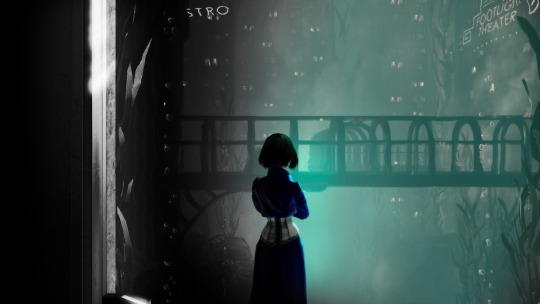
Elizabeth Comstock
I hold this character in very high regard.
The way the story smoothly transitioned her into central character focus, after making her retrieval the actual goal/game objective of the first act of the story, then a carefree NPC, then things got more interesting, she started showing more sides to her than just "uwu waifu mode".
She was dynamic.
Very slick.
She's a better developed Eleanor, tho Eleanor was also a cool character who pulled strings too.
Actually, deadass?
A lot of the Bioshock ladies one way or another was (co-/independently) lowkey running shit or making moves.
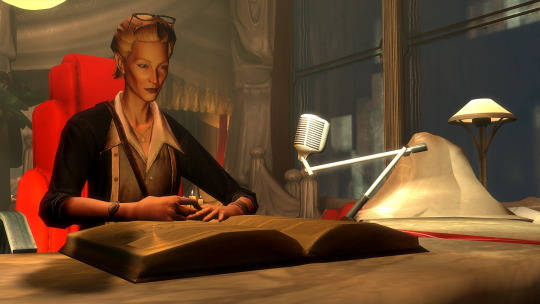

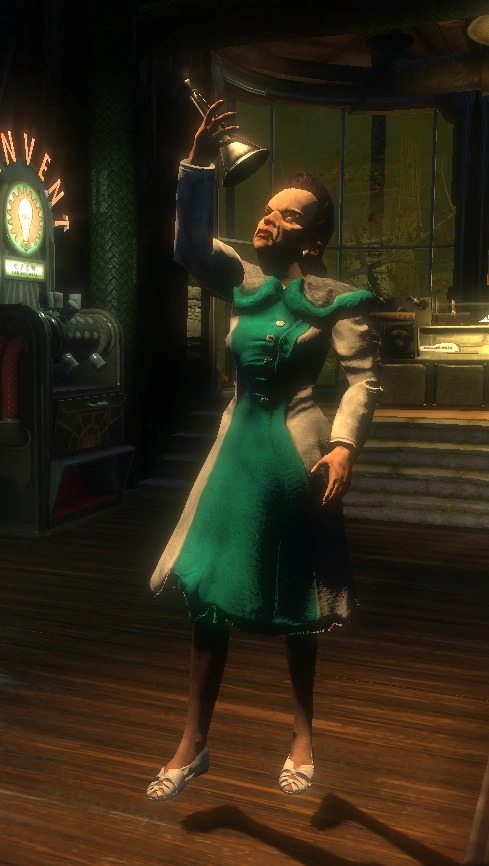
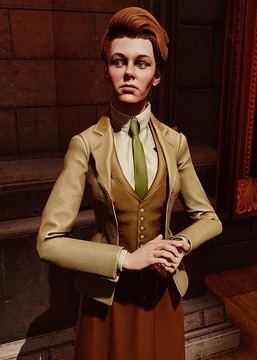

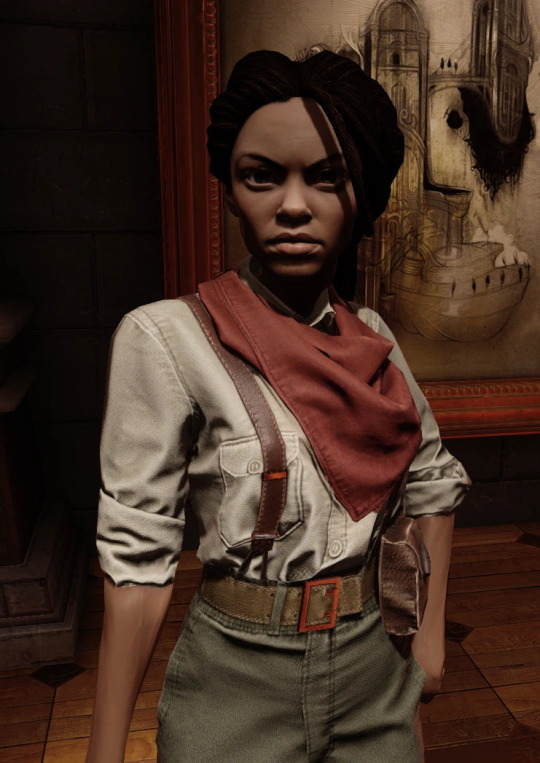
Sofia Lamb, Bridget Tenebaum
Julie Langford, R.Lutece
Eleanor Lamb, Daisy "mfing" Fitzroy
Fuck that "girlboss" shit.
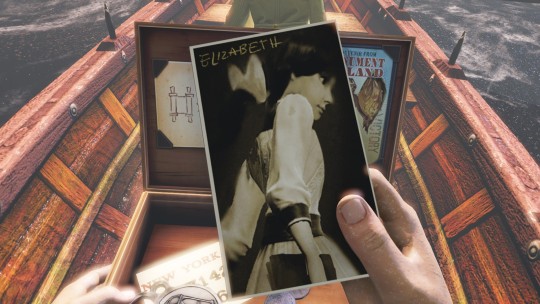
These ladies were beyond that, they were professionals, experts in their individual fields. From Biology, Quantum Physics, to social psychology, to just knowing how to lead.
They were qualified, not strong FEMALE characters, just solid CHARACTERS. Without the derivative labels. Love that shit when it’s done right.
And some of em are npc's, not even that deep, most prolly forgot some were in the game, but they were cool.

Usually you got characters just doing shit perfect nowadays because they:
Believed in themselves
Or somebody told them how special they were all along-
These characters have ***credentials***, Hollywood needed more of that energy in the writers room. Still do.
In a poetic sense, Elizabeth, with all that power+knowledge, was like the accumulation of all of those characters before & technically after her, for both better and for worse.
Cause she, our dear Elizabeth, did some questionable shit to get what she wanted sometimes.
Just like Daisy has no stranger to bloodshed, nor Sofia.
They're flawed, that's why they're believable.
They're not perfect little angles, while they guys look like idiots.
Everyone, one way or another, has issues.
Welcome to BIOSHOCK, enjoy your stay.
Thus, the beginning and end of Bioshock, Anna Dewitt.
This character is pretty decent.
It's a crime she's not more appreciated on "female character" game lists. Likely too much good writing and not enough midriff, fanservice, waifu mode, D.I.D, & skintight clothes for the peons to project onto.

Infinite didn't vibe with me at first, I actually did NOT like it (Still have my complaints, entirely with the enemy designs) but "Burial At Sea" was just:
Full circle, I'm a sucker for well executed time loops that don't make me roll my eyes.
Probably played BAS: Part 2 more times than I did the first game.
The difference between a girl and woman is "blood", jfc RIP to the homegirl, she was about that life to the end.
Won't spoil who tho, if you know, then you know. Play the game.
Since Levine (original Bioshock writer) is NOT on the project (And for a very understandable, even respectable reason to boot) but for some reason the 4th is being made anyway, this is screaming studio mandate than it is an organic "necessity" for the story.
Which is just MATRIX4GREED all over again: Sure the first 3 was a complete story, but WHAT IF? We made a 4th one for no fucking reason at all?

All they gotta do is just fit it in after Bioshock 2 chronologically. But I sincerely pray, and hope Bioshock 4 doesn't fuck up the time loop or the point of the original games frfr.
#bioshock infinite#bioshock#elizabeth comstock#constants and variables#a man chooses a slave obeys#lessermook#off her mind#put respect on her name#anna dewitt
10 notes
·
View notes
Text
So…I finished Burial at Sea Ep 2 today. (Finished the main game and BAS 1 last night and…)
Wow.
What a meh game.
Too much action, not enough story. (And trying to tie in to BS1 didn’t work, it felt forced.)
The potential was there, but…I simply didn’t like it.
(And what Elizabeth did to Sally in BAS 1? Using her as BAIT?! Idiotic.)
Although I did like the Siren sequence, at least the screams she did (the fight was garbage) were really spooky. And the Boys of Silence were freaky.
And why the freak was Atlas in Fontaine’s Department Store, wouldn’t Ryan have just killed him, not imprisoned him? Also why was he such a jerk? You’re not acting like the voice of people there, laddie. (Yeah, the players know who he really is, but where’s the ‘I am not a liberator, these people will liberate themselves,’ Atlas?)
*sigh* See, if I hadn’t spoiled myself for the game (which was super easy to do, I need to stay out of the Steam forums rather than check for recent bugs to look out for) I might’ve liked it more, I may’ve cared for Booker and Elizabeth, and the game barely gave them any time to care for each other.
One thing I can agree with a lot of players on though: they did Daisy Fitzroy wrong.
- - -
Well, having finally completed the Bioshock collection, I can see why they’re considered a classic. (Not you Infinite, the Edwardian city in the sky was nice, but that was all.)
I think I liked 1 most of all, BS2 was mildly frustrating because of it crashing, but it was still good.
#bioshock#bioshock infinite#burial at sea#I’m going to end with that#or I’ll go on about the things I hated in Infinite and BaS#The first two were INFINITELY more better#Burial at Sea can sink to the bottom of the briny
1 note
·
View note
Text
on our lady and her relationship with her own femininity - a meta looking at the character of lady a. c.omstock through the lens of religion, victorian womanhood, and pseudo science of the era.
or - a rewrite of an old meta that i needed a refresh given that i was in high school when i wrote this originally.
given the historical content from many sources in this post, please proceed with caution as it will contain heavy examples of misogyny and medical sexism. this post will also contain mentions of child birth, child rearing, pregnancy, and infertility.
THIS IS A MONSTER OF A META. GOD BE WITH YOU, YE WHO READ THIS.
Lady Comstock, within the narrative of of Bioshock Infinite, is shown to be a paragon of virtue - the wife of the cult’s prophet, the mother of the messiah; the ideal woman in all respects - the perfect mother, wife, and citizen and a model for all within columbia to emulate. While in the canon shown to the player within the game shows that she has been dead for near twenty years (providing Zachary the ability to use her corpse as a political prop, which is another discussion for another time) - it does not allow much exploration into Lady Comstock’s relationship with this mantle of holy mother, reconciling that with her own past, and the relationship she has with her own femininity and how she views herself under the influence of victorian upbringing and societal norms.
By 1912, Lady Comstock’s perception of her femininity, self, and womanhood is incredibly - horrifically - skewed; almost self-hating while deifying. I will split this meta into 3 sections - her past and victorian ideals, Mary’s role in faith (and thus, Amelia’s within the cult); and some culminating thoughts on how all of these factor into and impact Amelia near twenty years into her role as mother of the messiah within the narrative of Infinite.
PART I: PAST REVELATIONS AND VIEWS OF THE ERA.
Not much is known of Lady Comstock’s past within the canon of the game - it boils down to a single voxophone singing praise to the prophet, her redeemer, and is left open-ended for audience interpretation for as to what, exactly, she was seeking forgiveness for. the transcript of said audio diary is as follows:
“To those who loved me, I was the most generous of souls. There was no pain I would deny them. No betrayal I would not gladly give. And when I had scorched the hearts of all who loved me, the Prophet said, “There is nothing you can do for which I will not forgive you, for God has granted me sight, and through His eyes, even you are loved.”” (Unconditional; recorded in universe on April 1st, 1893)
Without reading too much into the audio and its implications, one can rightfully assume that Lady Comstock, at the very least, played with the affections of others for her own amusement until she was left alone due to her actions towards others. Aside from Daisy Fitzroy mentioning that Lady Comstock had ‘experienced hardship’ in her youth, nothing more is said about her past.
The most popular fanon interpretation (one that i also subscribe to) is that this voxophone refers to promiscuity. Given that the character of Lady Comstock is based off of American socialite and political figurehead Alice Roosevelt Longworth - a woman known for breaking many social rules in her day; in addition to several affairs throughout her life, which she did not hide and were common knowledge in high society, I agree with this interpretation of the audio diary. With Alice’s proximity to the white house, the social consequences for this would be less severe, however - turning back to Lady Comstock, in my own canon, this voxophone does refer to her engaging in multiple affairs with multiple partners with the express intent of playing with their affections and publicly betraying them for her own gain and amusement.
I have already discussed here why Lady Comstock must be of the upper class for Zachary to gain the traction he needs for his cult to flourish. with that in mind, most of high society could turn a blind eye to affairs - provided they remained discreet, which Lady Comstock at the time was not. The consequences of a promiscuous woman were more than just of the social variety, leaving her isolated; but of a moral variety as well. Elizabeth Lee (who received a BA from Brown University in ‘97 and wrote most of her material during a summer research group) also had this to say:
“Women were portrayed either frigid or else insatiable. A young lady was
only worth as much as her chastity and appearance of complete innocence,
for women were time bombs just waiting to be set off. Once led astray, she was the fallen woman, and nothing could reconcile that till she died.”
“This preoccupation developed into an ideology that legitimised unequal power relations in the economic and political sphere even as it glorified women’s role in the domestic and “moral” sphere. It is easy to see, therefore, how the myth of women’s salvatory and redemptive potential victimized women.” (Langland, Patriarchal Ideology and Marginal Motherhood in Victorian Novels by Women).
The Victorian Era had given rise to the cult of domesticity and the role of the ‘angel of the house’ - in engaging in torrid, obvious affairs, Amelia directly defies these societal expectations, and brings the ire of that society upon not the man involved in the affair, but the woman. Though these affairs, Amelia would have made her social worth and capital null and void - an ‘unwoman’; with nothing to remove that mantle from her in life. She would have been considered the lowest of the low; and become a fringe society member. In addition to this, women with sexual drive were considered ‘ill’ and ‘unnatural’; disrupting the ‘order of things’ through their anomaly -
“… there can be no doubt that sexual feeling in the female is in abeyance … and even if roused (which in many instances it never can be) is very moderate compared with that of the male…. The best mothers, wives, and managers of households, know little or nothing of sexual indulgences. Love of home, children, and domestic duties, are the only passions they feel. As a general rule, a modest woman seldom desires any sexual gratification for herself. She submits to her husband, but only to please him; and, but for the desire of maternity, would far rather be relieved from his attentions. (Boumelha; Thomas Hardy and Women. P. 14).
“Middle-class women who, by mid century, were giving birth 'confined' within the home, now achieved true womanhood if they responded emotionally to their infants and bonded with them through breast-feeding and constant attendance. Motherhood was seen as an affirmation of their identity.” (Abrams, Ideals of Womanhood in Victorian Britain).
Victorians, in addition to the moral consequences facing women who engaged in affairs and were connected with their sexuality and desires, also believed that women who were as such had something wrong with them on a medical, biological level - and subscribed to the belief that women were biologically destined to be subservient mothers - in addition to that, the Victorians also placed intrinsic value to a woman’s chastity:
“And how is the vice of unchastity confined within boundaries so rigid in the
case of the female sex? … it is because even an unchaste man will marry none but a chaste woman.” (Boumelha; Thomas Hardy and Women. P. 19).
“Even if Victorians did not subscribe to the idea of the Angel in the House, they were attracted to the implicit idea of women’s redemptive or salvatory potential.” (Langland, Patriarchal Ideology and Marginal Motherhood in Victorian Novels by Women).
Amelia, through her affairs, is victimised by this victorian mindset - and was not only removed of social capital and status, but ostracized from society and isolated with the consensus being that no matter what she did in the future that she would never be considered a ‘true’ woman - no amount of confession or repentance could change that. She would be, in the eyes of society, ‘damaged goods’; and nothing short of death could change that.
With that in mind, we lay the societal groundwork and environment that Amelia grew up surrounded by, and was conditioned in.
PART II: MARY, MOTHER OF GOD; HER ROLE IN THE CHURCH, AND LADY A. COMSTOCK, HOLY MOTHER.
After the elevation of Columbia and isolation of the cult, Zachary Hale Comstock reveals that Lady Comstock is to birth the messiah in seven days time - a girl who shall ignite the world and cleanse the sodom (re: Earth) below in flame. This prophecy and the action of Elizabeth being brought to Columbia cements Lady Comstock as the cult’s holy mother - the modern day ‘Mother Mary’ for the people to rally around.
Pope John Paul II wrote an encyclical on Mary’s role in the church which can be found here. Given the cult’s proximity to Catholicism in game canon, I have chosen to reference this in regards to Lady Comstock’s role within the cult as the mother of the messiah and the ‘mistress of forgiveness’.
Mary embraces each and every one in the Church, and embraces each and every one through the Church. In this sense Mary, Mother of the Church, is also the Church's model.
Mary is thus present in the mystery of the Church as a model. But the Church's mystery also consists in generating people to a new and immortal life: this is her motherhood in the Holy Spirit. And here Mary is not only the model and figure of the Church; she is much more. For, "with maternal love she cooperates in the birth and development" of the sons and daughters of Mother Church.
Amelia, with this position within the cult in mind, is also positioned socially at the helm of society - and in an environment where religion is one with all things in every level, she is to be a model for the women of Columbia and a piece of living, breathing propaganda - all that they are should aspire to be. She is, all at once, the perfect vision of a wife, mother, woman, and citizen in all that she does and must be above reproach in temperament, manner and history - and while she certainly has left things at the proverbial riverside, Amelia’s past is, according to the society she has grown up in and continues to be in, an unforgivable act. It should be noted, of course, that in my canon, lady comstock downplayed her relationships with others, her affairs, and lied in confessional to Zachary Hale Comstock - fearing another rejection after living as a pariah for so long.
Be that as it may - Lady Comstock must be, much like Mary, above her own humanity; a model to all and the spirit of the cult and its reach - for not only is Lady Comstock mother to the lamb (Elizabeth); she is mother to Columbia and all its people - it is her divine and (only) purpose within the cult and its hierarchy - and to fail or waver in that duty - or to question the prophet, who is both god and the church/cult embodied - would, of course, mean she has outlived her usefulness.
The Mother of that Son, therefore, mindful of what has been told her at the Annunciation and in subsequent events, bears within herself the radical "newness" of faith: the beginning of the New Covenant.
Lady Comstock, as the figure/spirit of Mary within the cult, bears the heavy weight of carrying it with her in all forms - Zachary may be a more tangible figurehead than God, and even redirects attention from Amelia to himself, but the narrative remains the same - she is the one to birth their messiah, it is her that carries the future of the cult and prophecy - and with that weight upon her, it is a venerated position meant for an ideal - not a living, breathing person to live up to and occupy. Indeed, Lady Comstock’s role within the cult goes beyond mother to the lamb - but becomes mother of the city and its people; with several referring to her as ‘sweet mother of Columbia’ and ‘mother of forgiveness’ et cetera, et cetera (all Marian-esque titles, might I add).
But Mary, of course, is not just a mother to the messiah and a carrier of the faith - but also a mediator between god and mankind - entreating to god for man, guiding christ to ensure he looks out for man. Mary is the balance - the bridge - between the holy and the mundane; and as such, Lady Comstock serves that same role - and does so, as far as iI can see within canon perception of her as some omnipotent entity ("You won't hide long from her! She knows no blindness!" "Her eyes are open even in the grave! You will not escape!" "I will shine her light on you!" "She sees in channels! Yes, she does!" Which, in canon, she has become in death a saint of justice and in that way they would be praying to her to intercede on their behalf in order to gain god’s justice; but again, Amelia the saint is a separate conversation for another day - and I have already discussed her narrative role as caritas) has her acting on behalf as a conduit for the loyal and devoted when the prophet is ‘busy’; or the prayers are not ‘important’ enough for him to act upon.
Thus there is a mediation: Mary places herself between her Son and mankind in the reality of their wants, needs and sufferings. She puts herself "in the middle," that is to say she acts as a mediatrix not as an outsider, but in her position as mother. She knows that as such she can point out to her Son the needs of mankind, and in fact, she "has the right" to do so. Her mediation is thus in the nature of intercession: Mary "intercedes" for mankind.
The teaching of the Second Vatican Council presents the truth of Mary's mediation as "a sharing in the one unique source that is the mediation of Christ himself." Thus we read: "The Church does not hesitate to profess this subordinate role of Mary. She experiences it continuously and commends it to the hearts of the faithful, so that, encouraged by this maternal help, they may more closely adhere to the Mediator and Redeemer." This role is at the same time special and extraordinary. It flows from her divine motherhood and can be understood and lived in faith only on the basis of the full truth of this motherhood.
Of course, this role is steeped in the fact that she is still a mother to the city, the faith (read; cult), and to its messiah - it is because she is a mother that she intercedes on behalf of man, and in that vein, it is also why Lady Comstock is shown to be that same mediator in the balance between god and man - because she is a mother; and not just any mother, but the mother of mothers within the cult. Above all else, her role is that of holy mother - mother in all ways, mother of all things; perfection and humility incarnate - and selfless, as only any holy mother can be.
PART III: SIMPLY, AMELIA.
Now that I have discussed the environment and views in which Amelia was raised in and formed by - as well as her role within the cult, we can discuss how all of this has impact her at her core; her identity, and her relationship with herself and the societal ideal of womanhood that she has found herself to be exemplifying. The years of social shunning and shame and the sudden exaltation of herself by the masses has, to put it lightly, twisted her sense of self and her views on herself.
Amelia was 16-18 during the time she found herself ostracized from society - two years of being treated as lower than dirt; two years of being reviled and shunned; of having all manner of comments and insults hurled her way by “polite society”. While obviously, her treatment of her flings was not the greatest - she did not deserve the outright disgust from the people around her, who would have simply been neutral on the matter had she been a man. Not only that, but having friends and those who had watched her grow up - people she had respected - and eventually, her own family; not only turn away from her and leave her alone, but to insult her and shun her at every turn?
That would deeply effect someone at any age; let alone an upset teenager who is lashing out at the world. Give it enough time, and no matter how much she might pretend that it does not effect her, it will - and Amelia begins to internalise these thoughts, these insults, these actions - believing that she deserves this; that she is everything that has been said about her, that she is unforgivable, and nothing could reconcile that now that she had left the good graces of society, and all that she understood about womanhood - that there was nothing beyond duty, motherhood, and rearing children; and now that she had strayed from this path, there was no recovering, or going back from this no matter what she did to attempt to fix it.
With all of this in play, it did leave Amelia open to being indoctrinated into the cult under the guise and appeal of finally finding redemption and getting a second start - a clean slate. She would have had no support system, no family looking out for her in order to keep their own reputations unsullied, and would have been at a very low point mentally/emotionally. This leaves her vulnerable - and it is all too easy for Zachary to draw her deeper into the cult once he finds out she has money to spare. Even with all this talk of redemption and clean slates, however, Amelia knows at this point that what she has done is unforgivable to the eyes of society - and fearing losing her chance at this second chance, she would lie to Zachary; claiming that the gossip was hearsay spread by men who she had spurned. This omission is understandable - but she continues to internalise these thoughts and beliefs, having no one to healthily discuss her emotions and thoughts with.
Her self-view continues to twist upon entering Columbia - the sudden exaltation; the prophecy that she is to bear the Messiah; first met with elation, but then sadness and despair as it becomes clear in game canon that she and the Prophet cannot conceive. Zachary mentions this in audio briefly:
“The Archangel tells me that Columbia will only survive so long as my line sits the throne. Yet Lady Comstock produces no child. I have done what a man can do, yet there is no child! I have asked Lutece about the matter, but even she refuses to help.” (A Broken Circle; recorded in universe on September the 10th, 1893; a month before Elizabeth’s arrival in Columbia)
The implication here is that Zachary blames Amelia for their failure to conceive - something that was common to do at the time with couples struggling with fertility. Amelia, too, blames herself - believing that her indiscretions have manifested into infertility; and that for lying to Zachary about the extent of these affairs, that God, himself, is punishing her with infertility - as all she knows is that women who have ‘fallen’ in the way she has never receive grace.
With that in mind, it can also be argued that her outburst in Rosalind Lutece’s home after Elizabeth’s arrival in Columbia was as much anger and hurt at the thought Zachary had had an affair with her, but a projection of her own thoughts and feelings towards herself on to Rosalind.
I have touched on the fact Amelia does not enjoy the deification she has received within the cult and in Columbia - it makes her uncomfortable at a base level; for she does not believe that she deserves it. Elizabeth is not ‘her child’ (though she comes to accept that she is indeed her daughter years down the road) - the messiah is a lie, the prophecy is a lie; and she, too, is a lie - but at every turn, she is praised as mother, above all else - when she knows this to be a lie; and believes that God, again, is punishing her for her transgressions. It is a heavy thing, to go from a social pariah to the apex of society - the ideal in everything. All those expectations would be crushing - and they are. Amelia has no resources or ability to cope with the self-loathing she feels internally, nor any ability to cope with or compartmentalize the devotion the public shows her - and it is killing her; and the blind adoration she receives does not sit well upon her shoulders. It is uncomfortable, to say the least - and has, over the years, twisted into self-loathing as she understands herself to be ‘unwoman’ in the eyes of society, while exemplifying womanhood within the cult - and endeavours to redeem herself by acting and being as she should, resulting in an unhealthy relationship with herself and her own sexuality.
Going deeper into that, Amelia treats herself with distance - she is not herself, her desires are not hers, and has become, in years, very much a voyeur into her own life - she has numbed herself, frozen herself; and in attempting to become this caricature of a woman and mother that Columbia has asked her to be: unerring, perfect - and above feeling. It manifests in certain ways - namely in her appearance, as she attempts to reclaim her femininity and own womanhood and exist with it in peace.
But if a woman has long hair, it is her glory? For her hair is given to her for a covering. Luke 7:38 ESV
Hair was also a symbol of womanhood in the Victorian Era with extreme importance placed upon it - Amelia covers hers, grows it long; wears it in elaborate styles - it is an intrinsic part of her; an extension - a visual representation of her reclamation of what she feels was taken from her. She’s got an unhealthy attachment to her hair - won’t let scissors near it - it is a core part of her identity. In addition, she dresses, of course, as she must - never too gaudy or ostentatious; always down to her toes, up to her neck, and down to her wrists - always blue, as a symbol of motherhood, of femininity. This, of course; is not as important to her as her hair - nor is it as important to her as the repression of her own sexual desires and appetites; which she cannot get rid of and are a great source of destress for her when they do surface, as she is constantly fighting against herself to be as she believes she is supposed to be: devoid of any desire.
But at the end of the day, she still finds that she does hate herself - and believes, at her heart, that it will only take one small thing to send her back to the state she once was in, for she has never achieved grace - and feels altogether undeserving of the title of mother, and all that it implies.
#indoctrination //#indoctrination mention //#cult mention //#cults //#sexism //#misogyny //#child birth //#pregnancy //#infertility //#religion //#THIS IS HEAVY LMAO#🕊️❝ you have declared it with your mouths; with your hands: a vow for the queen of heaven ( meta. )#🕊️❝ sanctify them by truth: your word is truth ( headcanons. )#this is a MONSTER meta#this is an entire dissertation what is WRONG with me
12 notes
·
View notes
Text
Finished Burial at Sea Episode 2, and with that, my time with Bioshock Infinite
I thought it was interesting to play as Elizabeth, who plays differently from Booker in that you’re basically playing Thief: The Dark Project, which is at least interesting and neat.
The Rapture locals are at least interesting and aren’t extremely obvious combat arenas, and the other new features are neat.
I did like how we got actual models for Atlas, that was neat.
It was also funny they had to introduce a retcon for Daisy Fitzroy given how much people hated that plot thread (Me included), it’s still stupid
But other than that? The story was just. ok. Both parts were just ok.
They’re too short to really explore what they wanted to go for, yeah AU Comstock surviving was interesting but he’s killed off, then for whatever reason they completely depower Elizabeth and trap her in Rapture Prime, they introduce all these weird plot threads (DRINKABLE PLASMIDS? Couldn’t you just go through the trouble of modelling a hypo!? Come on!) that only serve to complicate Bioshock 1
In particular the whole thread of Elizabeth finding out the code phrase felt so forced to connect it to the first game and create a closed loop, the scene with the Big Daddy was sweet though.
Overall it was pretty mediocre, it only served to make both Bioshock 1 and Infinite less special and cohesive, Infinite’s tonics are now revealed to just be bootleg plasmids (which sucks!), and the whole thing about Columbia inspiring parts of Rapture was also pretty dumb. I also am not sure how I feel about the Imprinting process for Big Daddies being that.
Seeing the famous Big Daddy killing Suchong scene in person was nice though
Overall, pretty mediocre DLC, least it gave us Rapture again
I think overall Bioshock Infinite is like? A 6.5/10, it’s so average and disappointing compared to the first two games, and the DLCs don’t help, in some ways, they even hinder it.
Episode 2 of Burial at Sea feels like Kevin Levine trying to complete a circle and make Bioshock 1 and Infinite absolutely impenetrable to sequels not made by him, which to me feels petty. If it’s to make sure no one can “Ruin it”, that’s fine, but in this case it just felt extremely petty because Bioshock 2 was pretty good!
And that ends my Bioshock retrospective, walked away with a greater appreciation for Bioshock 1, 2, and Minerva’s den, while also compartmentalizing that Infinite wasn’t as good as I remember, it helps me realize what’s good about games and what’s not, so! It was fun either way!
Not sure what I’ll play next, I’ve been playing this collection for roughly 11 days so. Might need a break
2 notes
·
View notes
Text
i really don’t mind using game face claims but there’s something SO satisfying when a live action face claim just FITS.

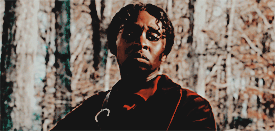
uwu !
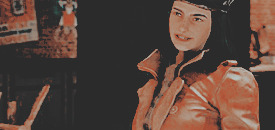

uwu !!

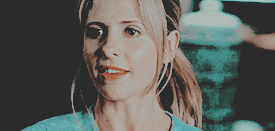
uwu !!!
#01. fear is the antidote to fear. / daisy fitzroy.#01. you can't stop the press. / piper wright.#01. do you know what hubris is? / faith seed.#jacob seed works super well too#i just don't feel like putting in the effort of making comparisons with his ass
15 notes
·
View notes
Text
Something that’s been bothering me for some time is the idea that you can make a piece of media and include bad themes and not even fucking know. This realization was kicked off by mulling over BioShock Infinite, which I have been doing a lot of lately. Most of BioShock Infinite was good, and I’ll be eternally grateful for the catharsis that I’m pretty sure only 1% of the world’s population could ever fucking have (exactly how many queer atheist exvangelicals from the American South long to come to terms with the individual and societal ills they caused?), but the bad parts were OHHH so bad. Like fundamentally broken bad. And although it’s been a hot minute since I’ve dug into Ken Levine interviews, I didn’t realize anyone could be as fucking tone deaf as the “violence from the oppressed is as bad as the oppressor’s” and “barely-explored black woman dies so white woman can have character growth”. I’m going to look into his background. I desperately want to know if he’s a trust fund baby or something because that’s some rich centrist white boy bullshit.
How, man. How do you put that media out in 2013. Like even back in 2013, when I was fresh out of Christianity, I’d rolled through enough Tumblr spats and Atlantic thinkpieces to get a feel for the unfortunate ways that isms pop out in media, and Daisy Fitzroy is Exhibit A. We’re talking about a theme that goes way back, too--slavery-era plus some: the black person who exists as a sort of tool or Macguffin or learning experience but has no identity beyond revolving around the white character. I will never forget Robinson Crusoe, when some guy runs up to Robin and is like, bro I want to be your slave plz :) and even I, a sheltered fundamentalist 11-year-old, was like: excuse me what
I think I fell into that common trap of thinking that because someone’s art could empathize with ME they could empathize with other causes I treasure as well. How could Levine, an urban Jewish man perhaps ten years my senior, somehow tack into evangelical nationalism in such a way that I felt like I had beaten my own face into a washbasin for ten hours? How the hell could he not with a black character? What does he think a black player is going to see? What do black players see all the fucking time? What do you think that feels like?
One of my greatest fears since childhood is that I’ll fuck up and hurt somebody. The problem is, of course, that I am a perfectionist and a people-pleaser, and the minute I sniff out a Thing That Might Be Bad, I’m like: HOW CAN I MAKE SURE I AM NOT DOING THE BAD THING SO I AM NOT EJECTED FORCIBLY FROM SOCIETY. Probably because a) I struggle desperately with social cues and b) there was such a big stretch of my life where I was hurting people and believed things that were just profoundly wrong--even though I actively, deeply didn’t want to be that person. I didn’t want to be that person, but I was. I was actively making the world a worse place. I hurt people. I made people cry. I know this for a fucking fact.
I finally got a bit of perspective as I was watching user txttletale (I refuse to @ that person rofl). See, every time I find someone on Tumblr who has a perspective utterly alien to my own in such a way that I feel like I’m being wrenched around by the shoulders, I watch them. txttletale is a Leninist from a third-world country in South America and oh holy god. I have found brand new ways to feel guilt.
I have to come to terms with the fact that I’m going to hurt people even though I don’t want to. I am going to believe things that aren’t right and they may be subtle or strange or even completely invisible unless introduced to specific contexts. There will be future comprehensions for which my current ones are unforgivable. It’s impossible not to have a perspective that has unforeseen consequences.
This is both a relief and a responsibility.
All you can do is your best. All you can do is try and treat people with respect and change your actions once you realize you’re fucking up. I can definitely do that.
2 notes
·
View notes
Text
Bioshock Infinite Fancast
I literally put this on hold for months because finding actors and actresses I thought looked and fit the part was really, really hard.
Booker Dewitt- Nikolaj Coster-Waldau


Elizabeth Comstock- Katherine Langford

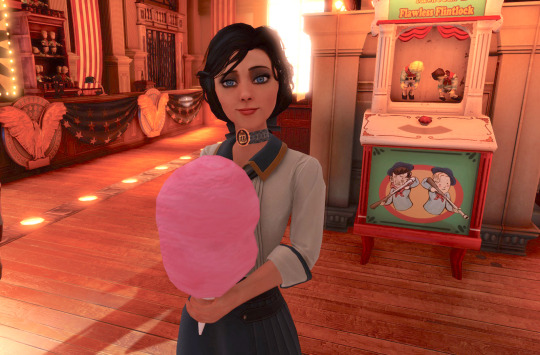
Daisy Fitzroy- Sonequa Martin-Green
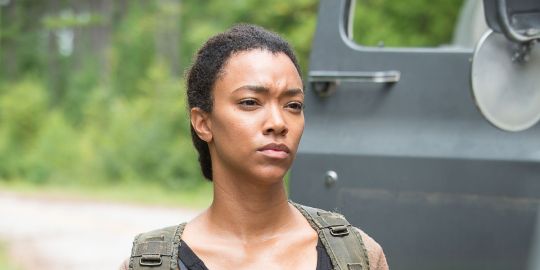
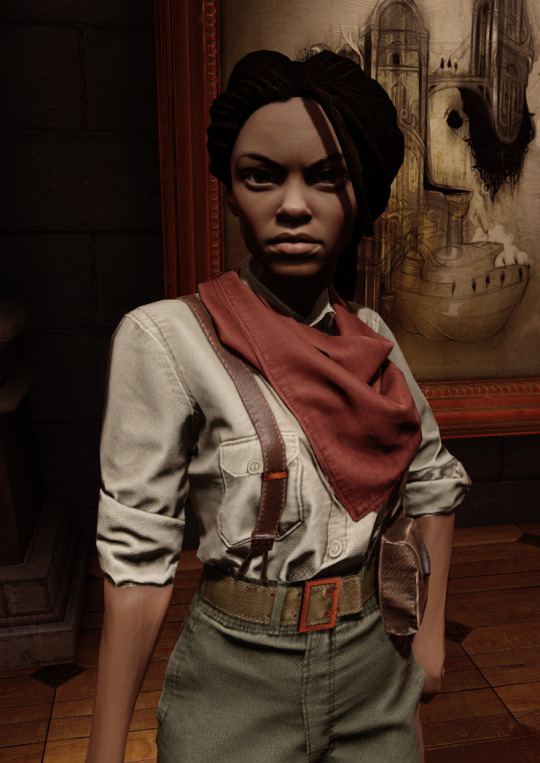
Jeremiah Fink- Jude Law
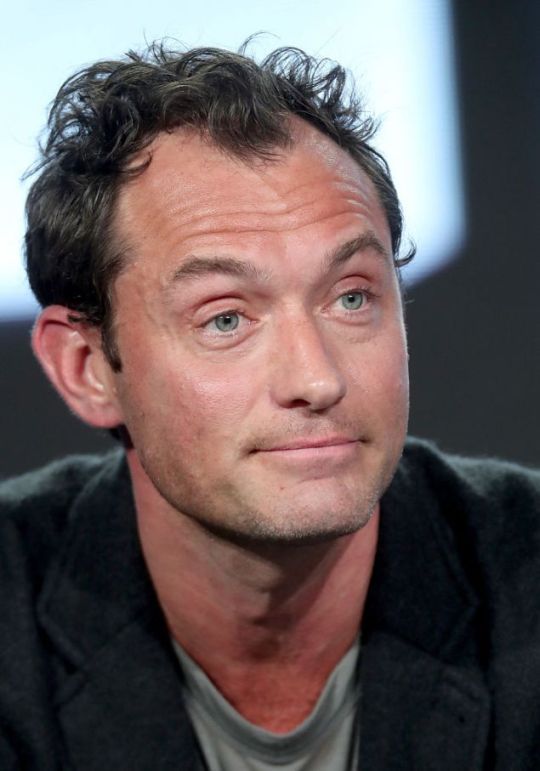
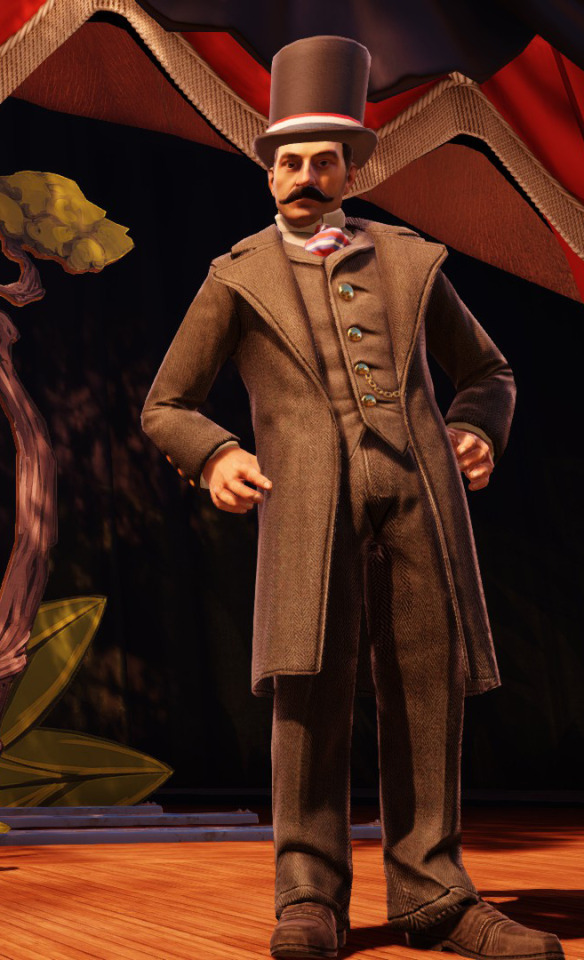
Lady Comstock- Emilia Clarke

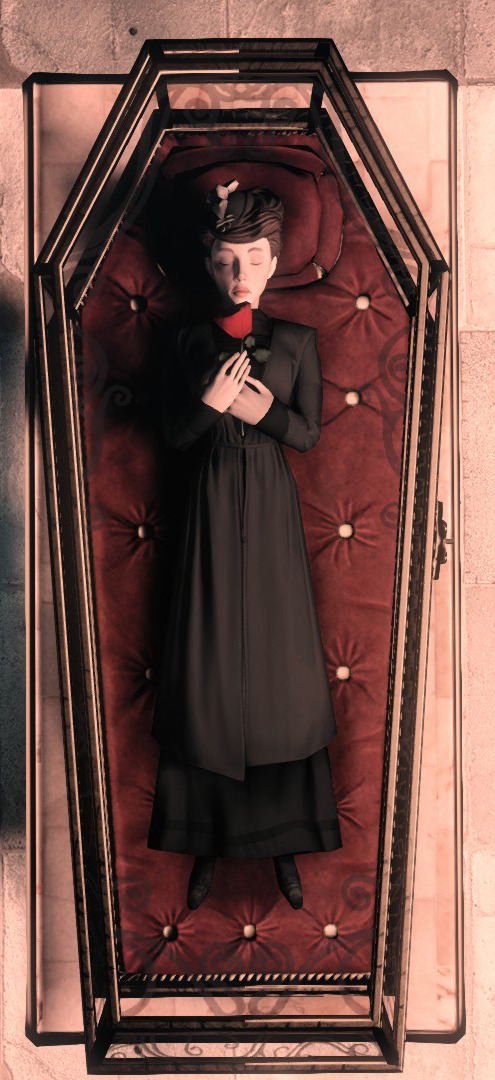
Zachary Hale Comstock- Kurt Russell
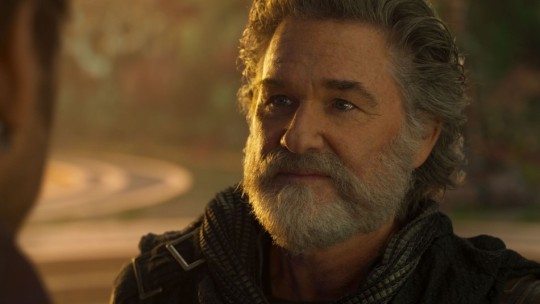
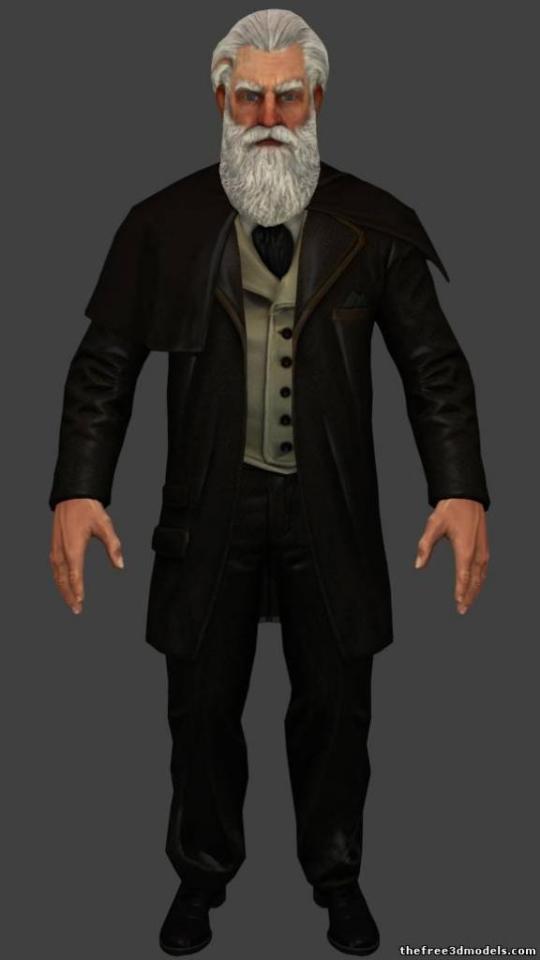
Robert Lutece- Damian Lewis
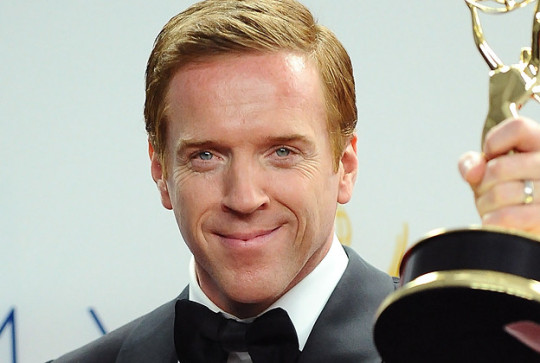

Rosalind Lutece- Amy Adams

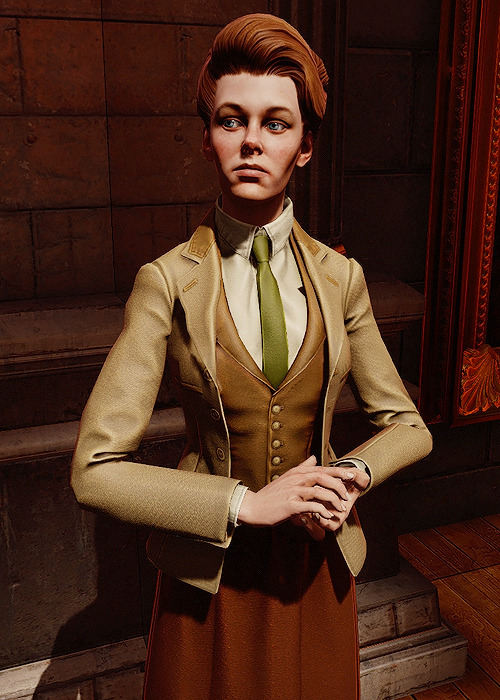
#bioshock#bioshock infinite#booker dewitt#elizabeth comstock#daisy fitzroy#jeremiah fink#lady comstock#zachary hale comstock#robert lutece#rosalind lutece#a lot of the actresses people wanted for Elizabeth were too old#I made do with what I had#I gave up on slate lmao
508 notes
·
View notes
Text
The most awkward of moments when you finish BioShock Infinite (again) but this time at 2 or 3 AM and all of the quantum physics and multiverse gobbledygook is starting to make sense instead of manufacturing headaches
#I love this game a bit too much#Every playthrough feels different#But I also enjoy shooting racists so like there's that#Also Daisy Fitzroy broke my damn heart#Predestination is a bitch
0 notes